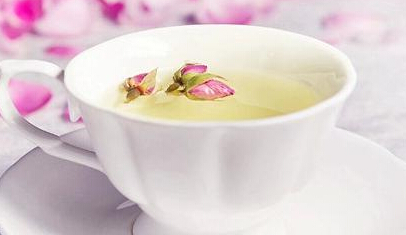What tea to drink for spring dryness? Spring is windy and dry, and health care needs to guard against spring dryness. The simplest and most convenient way to prevent spring dryness is, of course, drinking tea. Next, Health Road Network will introduce what tea to drink for spring dryness.
What tea to drink for spring dryness
1. Jasmine tea
Jasmine has a pungent, sweet, and cool nature, with effects such as clearing heat, detoxifying, promoting diuresis, calming the nerves, and sedation. It can treat conditions like abdominal pain due to dysentery, red and swollen eyes, and sores and abscesses. Jasmine tea retains the bitter, sweet, and cool properties of tea leaves while becoming a warm tea due to the baking process during production. It offers various health benefits, such as refreshing the mind and relieving spring fatigue.
2. Honey water
Honey contains multiple essential nutrients for the human body, is easily absorbed, and has the effects of clearing heat and moistening dryness. In spring, honey is the ideal health drink. Drinking a cup of honey water in the morning and evening can help with bowel movements, prevent colds, and detoxify the body.
3. Chick soup
Spring temperatures fluctuate, lowering immunity and increasing the risk of colds. For spring nourishing soups, chick soup is a good choice as it boosts immunity and prevents colds. It is rich in protein, easy to digest, and helps strengthen the body. Chick soup effectively suppresses inflammation and excessive mucus production, reducing nasal congestion, sore throat, and coughing.
The preparation and ingredients of chick soup vary widely. Besides chicken pieces, you can add coconut, abalone, lotus seeds, and other ingredients based on personal taste and health needs, making it delicious and healthy.
4. Couchgrass and honeysuckle tea
Take 40 grams of fresh couchgrass rhizome and 20 grams of honeysuckle flowers. Boil the herbs in 1000 ml of water, strain, add 20 grams of rock sugar, and stir. Drink one dose daily. This tea clears heat, detoxifies, and soothes the throat, benefiting viral colds, acute or chronic tonsillitis, and periodontitis.
5. Rose and ophiopogon tea
15–20 grams of roses and 20 grams of ophiopogon. Brew the roses and ophiopogon with boiling water. Discard the first infusion. This tea is particularly suitable for spring. Roses clear heat, detoxify, and promote blood circulation, helping to beautify the skin, fade spots, and prevent internal heat. Ophiopogon moistens the lungs and relieves coughs, making it ideal for spring.

6. Licorice tea
This tea can treat wind-fire toothache, red eyes, and cold-induced coughs. Take 10 grams of licorice, 5 grams of tea leaves, and 8 grams of salt, mixed with 1000 ml of water. Boil the water first, then add the licorice, tea leaves, and salt, and simmer for about 10 minutes before drinking.
7. Green tea
Green tea detoxifies, benefits the liver, and supports the gallbladder. Spring green tea, especially new tea harvested around Qingming and Guyu, is of the highest quality. After accumulating nutrients over winter, the tea leaves are rich in free amino acids and proteins, offering a refreshing aroma and taste. Longjing and Biluochun are excellent for reducing internal heat. For constipation and excessive internal heat, Tieguanyin is also effective.
8. Chrysanthemum and mulberry leaf tea
6 Hangzhou white chrysanthemums, 6 grams of mulberry leaves, and an appropriate amount of green tea. Place the chrysanthemums, mulberry leaves, and green tea in a cup, pour boiling water, and steep. Drink as tea throughout the day. This tea soothes the liver, brightens the eyes, and dispels wind-heat, benefiting conditions like external wind-heat and coughs.
9. Honeysuckle and chrysanthemum honey drink
10 grams of honeysuckle, 6 Hangzhou white chrysanthemums, and 20 grams of honey. Boil the honeysuckle and chrysanthemums in water for 20 minutes, then add honey and simmer briefly. Drink as tea throughout the day. This drink clears wind-heat, moistens the lungs, soothes the throat, and relieves constipation.
10. Green plum flower and black tea drink
6 grams of green plum flowers, 3 grams of bergamot flowers, and 5 grams of oolong tea. Brew the ingredients with boiling water, cover for 10 minutes, and drink when warm. This tea is suitable for liver-stomach pain, rib-side discomfort, and poor appetite.
11. Acanthopanax and jasmine tea
6 grams of acanthopanax, 3 grams of jasmine, and 5 grams of green tea. Brew the ingredients with boiling water, cover for 10 minutes, and drink when warm. This tea calms the mind, replenishes fluids, and relieves fatigue.
12. Lemon tea
This tea helps resolve phlegm, relieve fatigue, and reduce headaches. Slice 2–3 fresh lemons, add 1 gram of salt, and pour hot water. Drink while hot, as it turns bitter when cold. It can be consumed before or after meals without harming the stomach.
13. Wolfberry tea
Wolfberry tea nourishes the kidneys, liver, and lungs, brightens the eyes, strengthens bones, and alleviates fatigue. It is especially suitable for eye strain caused by prolonged computer use. Brew a dozen wolfberries with hot water and drink frequently. Consistent consumption for two months yields noticeable effects.